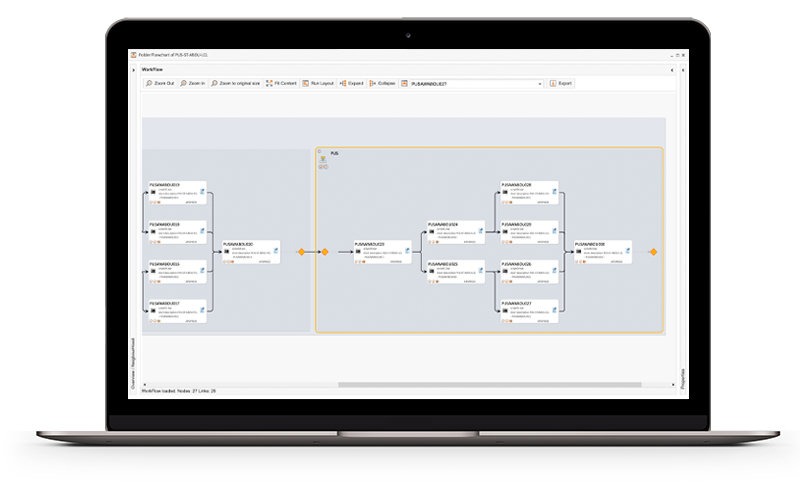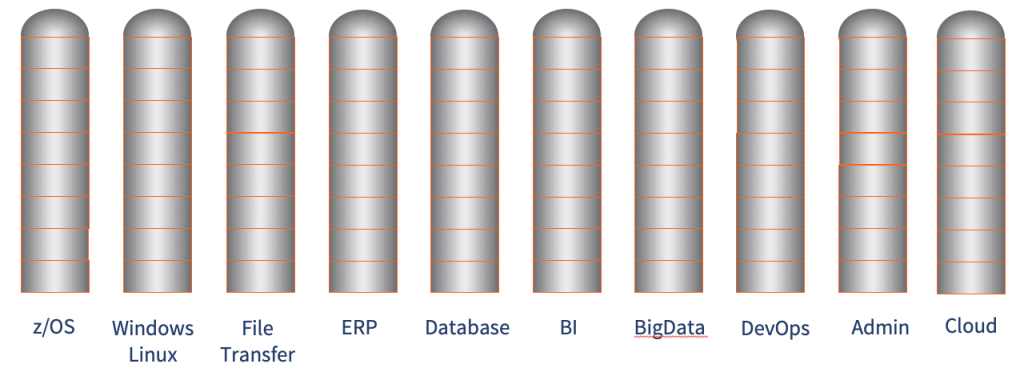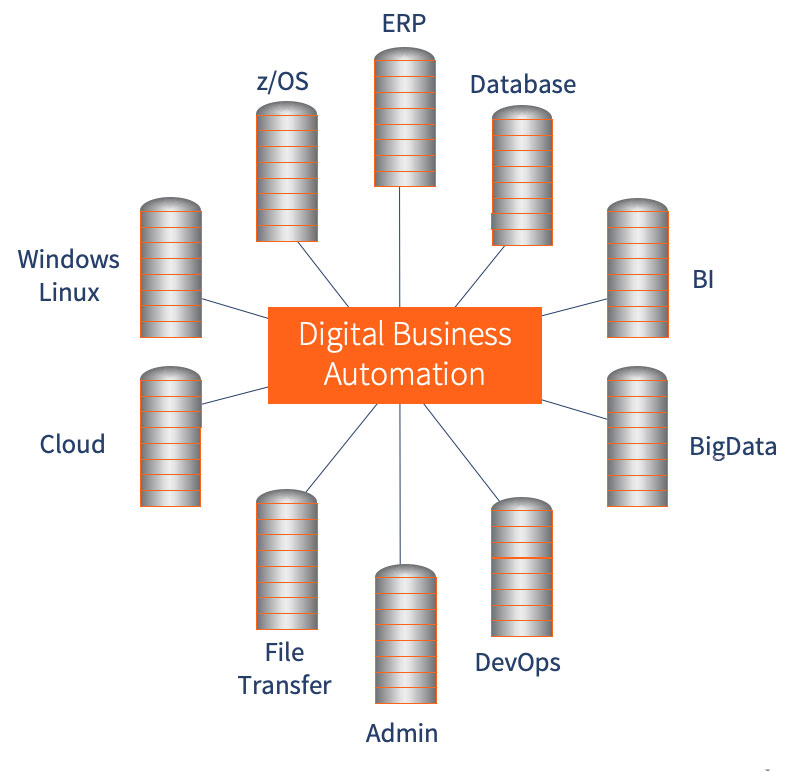
Blog
What is Digital Business Automation
and what benefits do companies derive from it?
Where does automation take place in companies?
When we think of automation, we first associate it with the automatic execution of machine production processes. Machines have already replaced recurring manual activities to a large extent in recent decades. Today, the degree of automation in production is very high in most companies, which has led to a considerable increase in productivity and quality. Many companies that did not recognize this development early on have left the market.

Digitalization and automation
With ever-increasing corporate demands for higher levels of digital transformation, the need for automated execution of repeatable processes is ubiquitous. With roots in traditional IT and production, automation is branching out into other areas of the company, from marketing, sales, finance, and administration to logistics and management. Previous manual activities can now be increasingly replaced by automated processes in these areas as well. Thus new opportunities and disruptive business models have emerged. The companies that make the most effective use of automation gain decisive competitive advantages.
The first steps
In the course of this development, many companies have implemented modern IT systems (e.g. electronic data storage, programs, and entire application landscapes). Almost every one of these systems already includes built-in functions, which allow processes to be automated. These systems are also called internal scheduling systems. The application of these internal scheduling functions already leads to first productivity advances.
Let us take a look at the areas in which these system-internal scheduling functions invoked are every day:
- Operating systems (Windows, Linux, z/OS, …)
- Applications (standard applications (ERP, e.g. SAP) and in-house developments
- Databases and file systems
- Data exchange (file transfer, internal and external)
- Data Warehouse and Business Intelligence
- Big Data, Data Lakes
- IT administration (e.g. backups)
- Cloud (including hybrid and multi-cloud architectures)

It quickly becomes apparent that many companies already work with a large number of different scheduling functions. However, these usually contain only limited automation functions. Also, these scheduling functions are specialized in a subarea and do not offer the flexibility to support other vendor products or disparate internal processes.
The isolated automation processes of different individual areas or silos, are closed themselves and not externally connected. In many companies, these segregated automation functions are a source of inefficiencies that companies cannot afford if they want to stay competitive. To overcome these automation limitations, many companies today rely on enterprise Digital Business Automation.
What is Digital Business Automation?
Today, Digital Business Automation offers the possibility to plan and execute digital processes not in isolation, but across systems.
All applications, data, and infrastructures can be connected and centrally controlled in a superordinate system. Digital Business Automation also facilitates the management of secure data transfers between internal and external customers and partners.
At the same time, “best practice methods” can be integrated into the automated processes, which contribute to an increase in quality and service.
Furthermore, an integrated “Forecast and SLA Management” (SLA = Service Level Agreement) allows current and future delays in the automated processes to be identified and eliminated at an early stage.
With Digital Business Automation, all automated processes can also be tracked and centrally documented for audit and compliance requirements.
The leading Digital Business Automation solutions also have easy-to-use self-service portals. So that even non-IT employees of a company can use automation.

Where is Digital Business Automation already used today?
Digital Business Automation is already indispensable for the majority of large banks, insurance companies, service providers, retailers, governments, and manufacturers. Due to the trend of digital transformation, the pressure for further automation is also increasing in medium-sized businesses. Digital business automation is changing here from “nice to have” to “must-have” as well.
What benefits do companies derive from Digital Business Automation?
Companies that implement Digital Business Automation benefit from increased levels of efficiencies in all areas of the company.
Recurring, manual tasks can be carried out more cost-effectively and reliably with Digital Business Automation. At the same time, the increased degree of automation within and between functional and organizational sub-areas of a company means that employees have more time for higher-value work. Paving the way to a more “intelligent company.”
Abstract: Digital Business Automation is a crucial factor in enabling companies to work more efficiently. It improves productivity, increases competitiveness, and helps companies move forward and grow sustainably.
Download Blog
Please send me this article in
PDF-format!
Talk to an expert
An experienced apsware consultant is at your disposal.
Information about Control-M
Information about Digital Business Automation with Control-M.